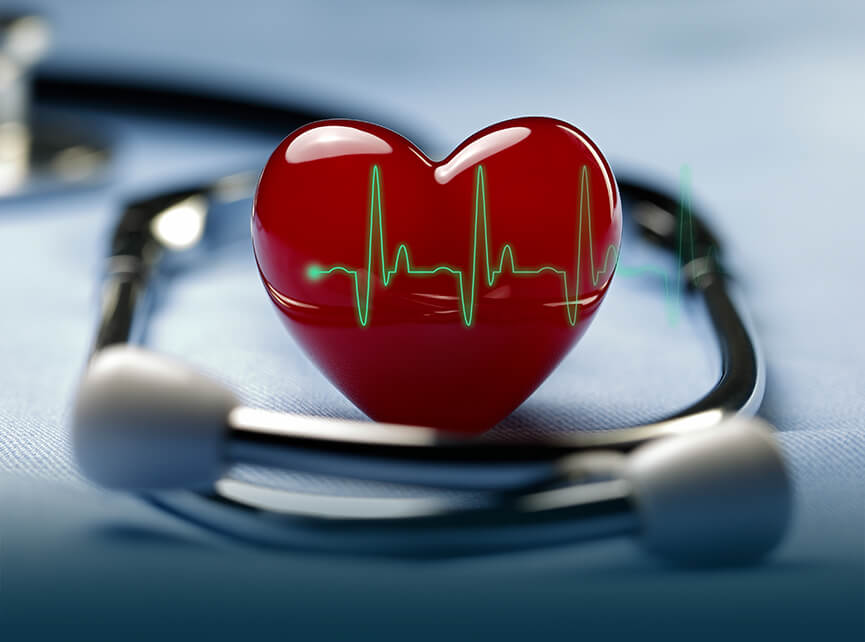How to optimize your heart health with Cardiology care
How to optimize your heart health with Cardiology care
Blog Article
Comprehending the Value of Cardiology in Modern Medical Care Providers
Cardiology plays a critical role in contemporary health care, especially as cardiovascular disease proceeds to be the leading source of death worldwide. Developments in diagnostics and therapy have actually changed individual care, allowing earlier interventions and improved outcomes. Additionally, the shift towards preventive cardiology empowers individuals to handle their wellness proactively. As technology continues to advance, the assimilation of innovative remedies might additionally redefine cardiology's effect on public health, motivating a more detailed exam of arising patterns and their implications.
The Prevalence of Heart Problem and Its Influence On Public Health
Although heart disease continues to be the leading reason of death worldwide, its influence extends far past specific clients to influence public health systems and economic situations. The high prevalence of heart problem positions a substantial stress on medical care resources, necessitating boosted funding for therapy, rehabilitation, and prevention programs. Public wellness initiatives have to deal with threat factors such as weight problems, smoking, and less active lifestyles, which contribute substantially to the rising incidence of heart conditions.Moreover, the financial worry connected with cardiovascular disease is tremendous, including not only straight clinical costs however likewise indirect expenditures associated with shed performance and early death. Communities deal with challenges in handling these prices, frequently causing differences in medical care accessibility and outcomes. As the population ages and lifestyle-related dangers remain to rise, the necessity for reliable cardiology treatments comes to be paramount. Consequently, attending to heart condition is not just an issue of specific wellness however likewise a critical public health and wellness concern.
Developments in Cardiac Diagnostics and Imaging Techniques
Recent advancements in cardiac diagnostics and imaging techniques have actually changed the area of cardiology, improving the ability to spot and check cardiovascular disease. Techniques such as heart MRI, CT angiography, and echocardiography have actually become increasingly innovative, supplying detailed images of heart structures and features. These techniques permit the very early identification of conditions like coronary artery disease, heart failing, and valvular disorders.Moreover, improvements in non-invasive diagnostics, such as wearable innovation and remote monitoring tools, have encouraged patients and doctor. These tools help with real-time tracking of heart rhythms and various other important signs, bring about timely treatments. Furthermore, expert system is being integrated right into imaging analysis, enhancing precision and efficiency in medical diagnosis.
Advancements in Treatment Alternatives for Heart Conditions
Current advancements in cardiology have brought about significant technologies in treatment choices for heart disease. These include innovative surgical methods that boost procedural results and arising medicines that use new opportunities for treatment. As the area evolves, these advancements play a vital function in boosting patient care and results.
Advanced Surgical Techniques
Technologies in medical techniques have changed the landscape of cardiology, offering new hope for individuals with heart disease. Minimally intrusive treatments, such as catheter-based interventions, have greatly minimized recovery times and hospital stays. Methods like robotic-assisted surgical treatment boost accuracy, allowing surgeons to navigate complex anatomical structures with greater accuracy. In addition, innovations in imaging modern technology facilitate real-time visualization during treatments, boosting end results. Transcatheter aortic shutoff substitute (TAVR) exhibits an innovation in dealing with aortic constriction, allowing valve replacement without open-heart surgical procedure. In addition, hybrid techniques that combine medical and catheter-based techniques supply customized solutions for various cardiac problems. These sophisticated medical methods not only boost person safety and security but additionally expand therapy alternatives, highlighting the critical function of technology in modern-day cardiology methods.
Arising Drugs and Treatments
As the landscape of cardiology remains to progress, emerging therapies and medications play a critical duty in enhancing therapy options for heart problems. Advancements such as novel anticoagulants and advanced lipid-lowering agents have actually transformed the management of cardiovascular diseases, substantially reducing patient morbidity and death. In addition, the growth of genetics treatments and regenerative medication supplies appealing opportunities for dealing with problems previously considered irreparable. Medical tests are consistently disclosing the efficacy of these treatments, pressing the boundaries of standard treatments. Additionally, the assimilation of digital wellness innovations promotes personalized medicine, permitting for tailored treatment plans based upon genetic and way of life variables. Collectively, these improvements highlight the dynamic nature of cardiology, improving person outcomes and redefining standards of care in contemporary health care.
The Duty of Preventive Cardiology in Individual Treatment
Preventative cardiology plays an important function in individual treatment by focusing on the recognition of danger aspects that add to heart condition. Via way of living alteration methods and very early discovery strategies, medical care service providers can efficiently decrease the incidence of cardiovascular events - Cardiologist near me. This positive approach not only improves patient outcomes yet additionally advertises lasting wellness
Threat Aspect Identification
While cardiovascular diseases continue to be a leading reason for morbidity and death worldwide, efficient risk factor recognition functions as a foundation of precautionary cardiology. Recognizing threat elements such as hypertension, diabetes mellitus, hyperlipidemia, and family members background is essential for very early intervention. Healthcare professionals make use of different screening approaches to examine these elements, enabling tailored preventive steps. In addition, comprehending a patient's way of life choices, such as smoking cigarettes and physical lack of exercise, even more educates risk analyses. This complete evaluation allows clinicians to establish individualized treatment plans focused on mitigating risks. By prioritizing danger factor identification, medical care systems can enhance person outcomes and decrease the total burden of heart diseases, inevitably contributing to enhanced public health techniques and resource appropriation.
Way Of Life Modification Techniques
A wide variety of researches highlights the vital function of way of living alteration strategies in decreasing heart disease risk. These techniques include nutritional modifications, raised Cardiologist near me exercise, smoking cigarettes cessation, and weight monitoring. By embracing a heart-healthy diet plan rich in fruits, vegetables, whole grains, and lean proteins, individuals can reduce cholesterol levels and blood stress. Normal exercise reinforces the heart and boosts total cardio wellness. Furthermore, stopping cigarette smoking greatly reduces the risk of heart problem and boosts recuperation prices for those with current conditions. Weight management better adds to cardio health and wellness by reducing other risk variables such as diabetes mellitus and hypertension. Carrying out these way of life transforms not only advertises specific wellness but also works as a keystone of precautionary cardiology in client treatment.
Very Early Detection Techniques
Way of life modifications greatly add to minimizing cardiovascular condition dangers, but they are most effective when coupled with very early detection strategies. Precautionary cardiology emphasizes the value of determining potential heart concerns before they escalate right into significant conditions. Strategies such as high blood pressure surveillance, cholesterol screening, and progressed imaging modern technologies like echocardiograms play critical functions in evaluating cardio health. Biomarkers and hereditary screening likewise enhance the precision of very early discovery, allowing for tailored precautionary techniques. Regular cardiac risk examinations equip medical care companies to interfere proactively, potentially preventing cardiac arrest and strokes (Dr Garcia). By incorporating these very early detection approaches into routine treatment, individuals can gain from prompt way of life treatments and targeted treatments, ultimately boosting and boosting outcomes lifestyle
Integrating Technology Into Cardiology Practices
As advancements in modern technology continue to improve numerous fields, the assimilation of ingenious devices and systems right into cardiology practices has actually come to be essential for boosting individual care and outcomes. Telemedicine systems permit cardiologists to check people from another location, improving accessibility to care while lowering the burden on healthcare facilities. Wearable gadgets, such as smartwatches, enable continuous heart rate tracking, signaling both people and medical professionals to possible concerns in real-time. In addition, fabricated knowledge (AI) is being made use of to assess substantial quantities of cardiac data, assisting in early medical diagnosis and tailored therapy strategies. Advanced imaging strategies, consisting of 3D echocardiography, improve visualization of heart structures, leading to extra specific treatments. Digital health and wellness records (EHRs) streamline person details administration, guaranteeing that cardiologists have immediate accessibility to critical information. With each other, these technological advancements are changing cardiology, promoting proactive monitoring and enhanced health and wellness results for clients with cardiovascular problems.
The Importance of Individual Education and Interaction
Patient education and interaction play an essential role in the management of cardio health and wellness. By outfitting patients with expertise concerning their problems, treatment alternatives, and lifestyle modifications, doctor encourage individuals to take an active function in their treatment. This proactive method can bring about improved adherence to prescribed medications, nutritional changes, and exercise routines, inevitably reducing the danger of complications.Engagement likewise cultivates a solid patient-provider relationship, motivating open interaction and depend on. When people feel notified and involved, they are more probable to voice worries and ask inquiries, which can bring about better clinical outcomes. Furthermore, academic resources, such as workshops or electronic platforms, can boost understanding and advertise self-management strategies. Overall, prioritizing client education and engagement is necessary for enhancing cardiovascular health and wellness, enhancing lifestyle, and minimizing health care expenses connected with cardiovascular illness.
Future Trends in Cardiology and Their Potential Impact

Often Asked Inquiries
What Lifestyle Adjustments Can Lower Heart Problem Danger?
The current inquiry addresses way of life modifications that can substantially minimize cardiovascular disease risk. Dr Garcia. Taking on a well balanced diet, taking part in normal physical activity, maintaining a healthy and balanced weight, handling tension, and preventing tobacco can significantly improve cardio health and wellness
Exactly How Can I Identify Early Indications of Heart Problems?
Recognizing early indications of heart troubles includes surveillance signs such as breast discomfort, shortness of breath, fatigue, and uneven heart beat. Timely awareness of these signs can motivate necessary clinical analysis and intervention for far better outcomes.
What Are the Differences In Between Cardiologists and Cardiac Surgeons?
The distinctions in between cardiologists and cardiac specialists hinge on their duties; cardiologists mostly manage and identify heart disease via non-invasive approaches, while cardiac cosmetic surgeons do surgical treatments to correct structural heart concerns. Each plays a vital, distinctive role.

How Frequently Should I Get My Heart Health And Wellness Checked?
The regularity of heart health and wellness checks differs based upon individual risk aspects. Normally, adults must undergo examinations each to two years, while those with status quo might call for even more frequent assessments as suggested by medical care specialists.
What Function Does Genes Play in Heart Illness Threat?
Genetics substantially influences cardiovascular disease risk, with familial patterns showing inherited problems. Details genetics can predispose people to hypertension, cholesterol concerns, and various other cardiovascular issues, highlighting the relevance of hereditary screening in examining heart health. Heart illness stays the leading reason of death globally, its effect expands much past specific patients to affect public health systems and economies. Public health campaigns should address danger variables such as obesity, cigarette smoking, and sedentary way he said of livings, which contribute significantly to the increasing occurrence of heart conditions.Moreover, the economic burden linked with heart illness is enormous, including not only direct medical prices but additionally indirect expenditures related to shed productivity and early mortality. Preventative cardiology plays a necessary role in client treatment by concentrating on the recognition of danger elements that add to heart disease. Fabricated intelligence (AI) and equipment knowing are improving diagnostics and client surveillance, enabling very early detection of heart diseases. The distinctions between cardiologists and cardiac doctors exist in their roles; cardiologists mainly diagnose and manage heart problems via non-invasive methods, while heart specialists execute surgical procedures to fix structural heart problems.
Report this page